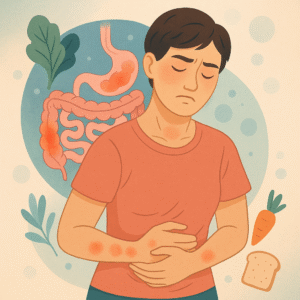Crohn’s disease is a chronic autoimmune condition where the immune system attacks parts of the digestive tract, causing inflammation, ulcers, and pain. It can affect any part of the digestive system—from the mouth to the anus—but most often targets the end of the small intestine and the beginning of the colon.
Crohn’s is unpredictable, with periods of flare-ups and remission, and while there’s no cure, treatments can help manage symptoms and reduce inflammation.

